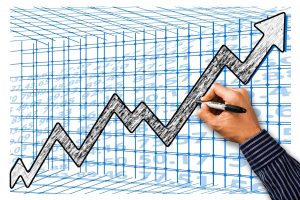
In Japan, the freezing in the traditional rules that govern the economy and the collective mental has kept the country in recession for a year. In big contrast, Russia has been, since the communism fell down, an emblematic area for the defiance of all norms unanimously accepted, where the payment of the taxes to the state became an exception and the Mafia took out the county an amount of money equal, according to some voices, to all Romania’s gross domestic product.
The reality is that the speed without precedent of the changes around us, from the technological ones to the evolution of the financial markets, forces the world to permanently improvise, at the edge of the hysteria. Somebody, very inspired, said that the only thing that doesn’t change is the certainty that everything changes. In the Middle East, the peace process between Israel and the Palestinians, persistently cultivated by President Clinton for some years, was dispelled in several weeks. If, at the beginning of the year 2000, the boom of the American financial markets had led the Internet companies to incredible capitalization, the end of the same year led most of them almost to bankrupt. And Milosevic, who had managed to stay in power after the armed conflict in Kosovo, was removed when he organized advance elections he had thought he could easily manipulate. 2000 was, somehow, the Year Putin too. A strong man, a typical representative of the circles dominated by the secret services and the army, he replaced Russia on the world influence map, be it at the level of the public perception. A map of influence in its turn fundamentally redrawn now. The big corporations have become now stronger than governments.
Which is, eventually, the comparative relevance – at the level of the real influence – of a country like Romania and the one of some companies like General Electric or Wall Mart, with annual business figures 5 or 6 times bigger than our gross domestic product.
The adaptation capacity of a country to the medium changes, of transformation of the economy, of the institutions, of the mentalities, is mainly determined by the existence of some cultural attitudes more than by the economic context. Lester Thurrow again was saying that the advantage of the United States comparing to Europe, for instance, under technologically comparable circumstances and at least equal as for the education system, is the "Americans’ capacity to destroy the old". In Romania’s case, "the old" means a mass industrial base, mostly technologically superannuated, it means centralism, obedience towards the civil servant, "flexible" ethics of work, avoidance of competition and responsibility in the high education, it means expecting the solutions to come from the top and believing in miracles, that is all that fundamental system of values impregnated in the collective mental that has kept the country blocked for more than 11 years. It would be much too easy to blame the political class all the time. After all, it is the expression of a reality we can meet everywhere around.
In a political and economic environment in real change, the nations’ and the people’s opportunities appear and disappear very, very fast. And the know-how to adept yourself to an environment is one of the basic conditions of evolution. To continuously bank on the comfort of continuity doesn’t seem to be the winning solution in the contemporary world.
(Alexandru LAZESCU)























